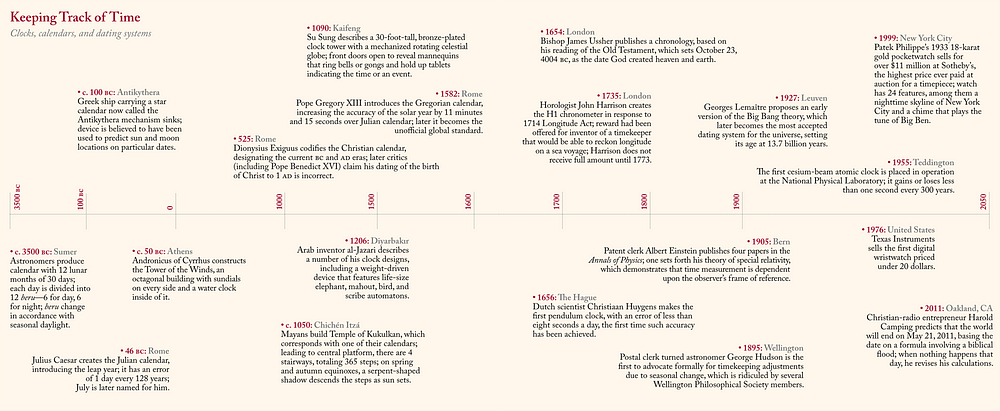Heritage
The Importance of History To A Business

It is not the honor that you take with you, but the heritage you leave behind — Branch Rickey, American Athlete
When choosing a product or service, some consumers often think about heritage. Perhaps, the majority just look for ‘value for money’. That’s because brands with a rich heritage often command a steeper price. That’s not to say that they are value for money. They could be overpriced. However, pricing is as subjective as value. Over the years, I have been a buyer of heritage i.e. if I had to choose between two equally priced brands with similar features, all else being equal, I would choose one with a richer heritage. This article delves deeper into the value of heritage to a business. It argues that heritage is the ultimate expression of empathy i.e. a buyer emapthizing with the vision of the founder of a business.
Soichiro Honda, the founder of Honda Motor Co. was a fiercely independent individual. To date, Honda is the only company that has not entered into a collaboration with other automakers at a time when technology is eating the automobile industry and partnerships are the norm.

Either, Honda’s choice is anachronistic or it is part of it’s DNA. In either case, it harkens back to the ideals of Soichiro. Soichiro once said “Racing Improves The Breed”. Honda’s products, to me, symbolize a racing DNA. I have been a loyal Honda customer so far. While Toyota is an equally powerful brand, I use a Honda automobile because when I feel the racing DNA in the roar of it’s engine. Suffice it to say, it’s a piece of history that everyone does not buy into. For a lot of people, products are just that-products. To me, the chiseling of a product is also worth buying into.
To Kill A Mockingbird
Mumbai is as cosmopolitan as New York but in a different way. Mumbai is a melting pot of Indians from all over the country whereas New York is a melting pot of immigrants around the world. Sitting in Mumbai, I couldn’t imagine Monroeville, Alabama until I saw the movie adaptation of Harper Lee’s classic ‘To Kill A Mockingbird’. Gregory Peck, to my mind, portrayed Atticus Finch to the T. Most societies, India and the US included, have their fair share of societal schisms under various guises i.e. race, religion and caste. The real problem is almost always economic. Scout, Jem and Dill (characters in the movie) seemed to portray my life growing up. I witnessed my own innocence being destroyed by watching communal riots in Mumbai. This is what I call empathy through commonality. I felt the same pain as the characters in the movie. This is just an example of empathy that can transcend generations and of common values shared across the world. Music is another great medium of empathy through commonality. Why do we prefer certain kinds of music? The answer is very similar to our preference for some brands.
When I read Walter Isaacson’s biography of Steve Jobs, I realized what it would have felt to be an outsider. I have no research to prove my point but reading the book gave me an impression that Jobs’ maniacal focus on perfection and aesthetics stemmed from his deep seated desire to rebel against a conformity enforced by society.
That deep seated desire gave birth to brilliant products and a posthumous legacy of a $900 Billion market cap company.

At times, I have felt like an outsider. This common empathy drove me to buy Apple products. When my friends questioned my loyalty, I had only one line to say:
“The products are simply beautiful”
However, it was my deep seated identification with Steve Jobs’ life that was the root cause of my purchases.That is also a common feeling shared by buyers of heritage. Empathy binds them to a product. Talk to any McLaren loyalist and you will know. One of my most profound lessons from the book “To Kill A Mockingbird” was this quote written by Harper Lee:
“You never really understand a person until you consider things from his point of view… Until you climb inside of his skin and walk around in it.”
So, you see, you never really understand heritage until you go back in time, relive the very moments before the invention of the product and then treasure your slice of history.
The Times, They Are A Changing
A lot of early developments in the watchmaking industry really took place in Germany, France and Britain. The Swiss watch industry took over leadership from British watchmaking in 1850. However, at the time, the watches were mass produced, low quality products. In 1868, Florentine A. Jones moved from America to Switzerland and founded the International Watch Company. Later, many Swiss companies moved from assembling components made in different parts of the country — a concept known as établissage to making all the components inhouse. This development coupled with several others resulted in superior quality products that have been hard to displace over the years. Therefore, when you buy a Swiss watch, you buy into the birth of a watch.

Patek Phillipe, in Geneva, claims to have made the first wristwatch in human history. Since then, wristwatches have moved to digital wearables that combine multiple functions with modern aesthetics.
When Apple launched the Apple Watch, many predicted the demise of analog devices including Swiss watches. In a world full of digital devices, wristwatches do not become relics. Instead, they signal an indulgence in understanding human evolution.
Ironically, though, the American ingenuity that made the Swiss industry is the very same force disrupting the Swiss industry. As per Forbes, the Swiss watchmaking companies need to move fast to realign their strategy to the changing times.
Those Sentimental Fools
Gabriel García Márquez, the Colombian born author, wrote in his book “One Hundred Years of Solitude” — “Things have a life of their own,” the gypsy proclaimed with a harsh accent. “It’s simply a matter of waking up their souls.”
There is a thin line between romantic literature and foolish ramblings because of three reasons. First, the value of heritage to a business cannot be reduced to financial valurations. Second, the past can be an expensive indulgence if brands do not disrupt themselves to keep pace with the changing times. Finally, like all matters of the heart, heritage is felt and perceived. The core DNA of a company rarely changes. Genetics are god given. In case of a business, heritage is the legacy of the founder. However, that heritage needs to evolve with the changing times.

When you walk along the streets around the Bombay Stock Exchange (BSE) in Mumbai or along the footpaths opposite the Chhatrapati Shivaji Terminus train station (CST as the locals call it), you can admire a piece of India’s colonial history with British architecture strewn all around. Gothic architecture with Gargoyles and Lions intermeshed transport you back in time while the rest of the city marches into the future. The most beautiful Starbucks cafe, I have been to, also happens to be near the BSE. The fusion of millennials sipping coffee, in an old Victorian heritage site, with modern technology dotting the landscape is a heady concoction.
In short, I am a hopeless romantic who happens to love the timelessness that heritage represents. Most people would characterize me as a sentimental fool that is buying into thin air. However, I feel they are missing the point. Think about the time cars used stick shifts or manual gears. Many people would call that “real driving” and they would complain that the drivetrain killed human judgment. I feel the same way. Heritage, like positive news, is priceless. Not because it gives you happiness but because it is rare. A rarity that must be trapped while the sands of time trickle by.
When all else is done, all we have are our roots.
